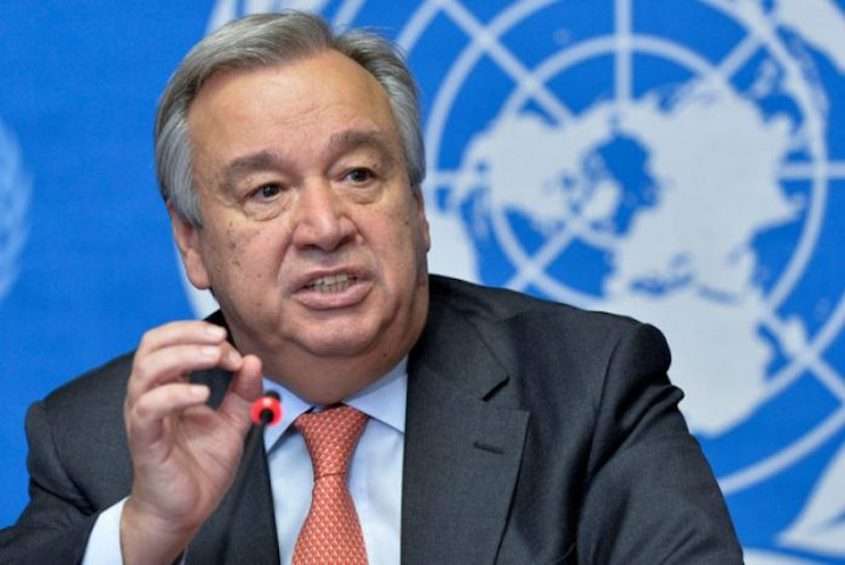UN Calls for Cessation of Israeli Bombing in Syria
The ongoing conflict in Syria has once again been brought to the forefront of international attention, with a renewed focus on the escalating tensions between Israel and Syria, the humanitarian crisis, and the complex interplay of international actors involved in the region. U.N. Secretary-General Antonio Guterres has publicly condemned Israel’s recent airstrikes within Syrian territory, characterizing them as violations of Syrian sovereignty and international law. Guterres’s call for an immediate cessation of hostilities underscores the growing concern over the potential for further escalation and the devastating impact on an already fragile nation grappling with a prolonged civil war and a severe humanitarian crisis. The Secretary-General emphasized the urgent need for a peaceful resolution to the conflict, urging all parties to respect Syria’s territorial integrity and work towards a political solution that upholds the rights and aspirations of the Syrian people.
Israel’s repeated airstrikes within Syria, purportedly targeting weapons and military installations, have raised serious questions about the proportionality and legality of such actions. The attacks, concentrated primarily near Damascus, have further destabilized the region and fueled fears of escalating conflict. The situation is further complicated by the presence of U.S. journalist Austin Tice, who has been held captive in Syria for over twelve years. His family has expressed grave concerns that these airstrikes could inadvertently harm him, adding a humanitarian dimension to the already complex geopolitical landscape. Adding to the tensions is Israel’s military incursion into the demilitarized zone near the Golan Heights, an area patrolled by U.N. peacekeepers. Guterres reiterated that only U.N. forces should be present in the demilitarized zone and urged both Israel and Syria to adhere to the 1974 disengagement agreement designed to prevent conflict in the region. While Israel has claimed the troop deployment is temporary, the lack of a clear timeline for withdrawal has raised concerns about a potential escalation of tensions.
The United Nations continues its efforts to facilitate a peaceful transition in Syria towards a just and democratic political system, while simultaneously addressing the dire humanitarian crisis that has gripped the nation for years. Guterres emphasized the critical role of the international community in supporting the Syrian people in shaping their own future, highlighting the need for sustained humanitarian assistance and a commitment to fostering an inclusive political process that addresses the root causes of the conflict. This commitment is crucial in light of the ongoing instability and the challenges in achieving a lasting peace. The revelation by the Pentagon that there are approximately 2,000 U.S. troops currently deployed in Syria, a significantly higher number than previously acknowledged, further complicates the situation. These troops are reportedly engaged in operations against ISIS and are considered a temporary presence. Simultaneously, Iraq’s repatriation of nearly 2,000 Syrian soldiers who had sought refuge during the fighting against President Assad’s regime adds another layer of complexity. Iraq’s decision to retain the soldiers’ weapons, pending the establishment of a new Syrian government, raises questions about the potential impact on the delicate balance of power within Syria.
Russia’s long-standing support for the Assad regime remains a key factor in the ongoing Syrian conflict. President Vladimir Putin’s statement that Assad’s potential overthrow does not represent a loss for Russia underscores the strategic importance of Syria to the Kremlin. Russia’s military intervention, including airstrikes in support of Assad’s forces, has been a decisive element in the conflict’s trajectory. The upcoming meeting between Putin and Assad is anticipated to address critical issues, including the fate of Austin Tice and the broader political landscape in Syria. This meeting holds the potential to significantly influence the direction of the conflict and the prospects for a peaceful resolution. The complexities of the situation are further exacerbated by the varying international perspectives on the conflict and the future of Syria.
U.S. Secretary of State Antony Blinken has emphasized the opportunity for Syrians to build a future free from dictatorship, foreign interference, and the threat of terrorist groups. Blinken’s call for an inclusive and representative government, alongside efforts to address the threats posed by chemical weapons and ISIS, reflects the U.S. administration’s priorities in the region. However, achieving these goals remains a significant challenge given the deeply fragmented political landscape and the ongoing presence of various armed groups. The recent appointment of a new education minister in Syria has offered a glimmer of hope in the midst of the ongoing turmoil.
Nazir Mohammad al-Qadri’s commitment to ensuring girls’ continued access to education underscores the importance of prioritizing basic human rights and investing in the future of Syria’s children. His statement, highlighting the value of education above even basic necessities like food and water, reflects a recognition of the transformative power of education and its crucial role in rebuilding a shattered nation. The future of Syria remains uncertain, with multiple challenges and conflicting interests complicating the path to peace and stability. The international community faces a daunting task in supporting the Syrian people in their pursuit of a just and sustainable future, one that respects their rights and aspirations and allows them to rebuild their lives after years of devastating conflict. The need for a coordinated and sustained international effort, focused on humanitarian assistance, political dialogue, and addressing the underlying drivers of the conflict, remains more critical than ever.
Share this content:












Post Comment